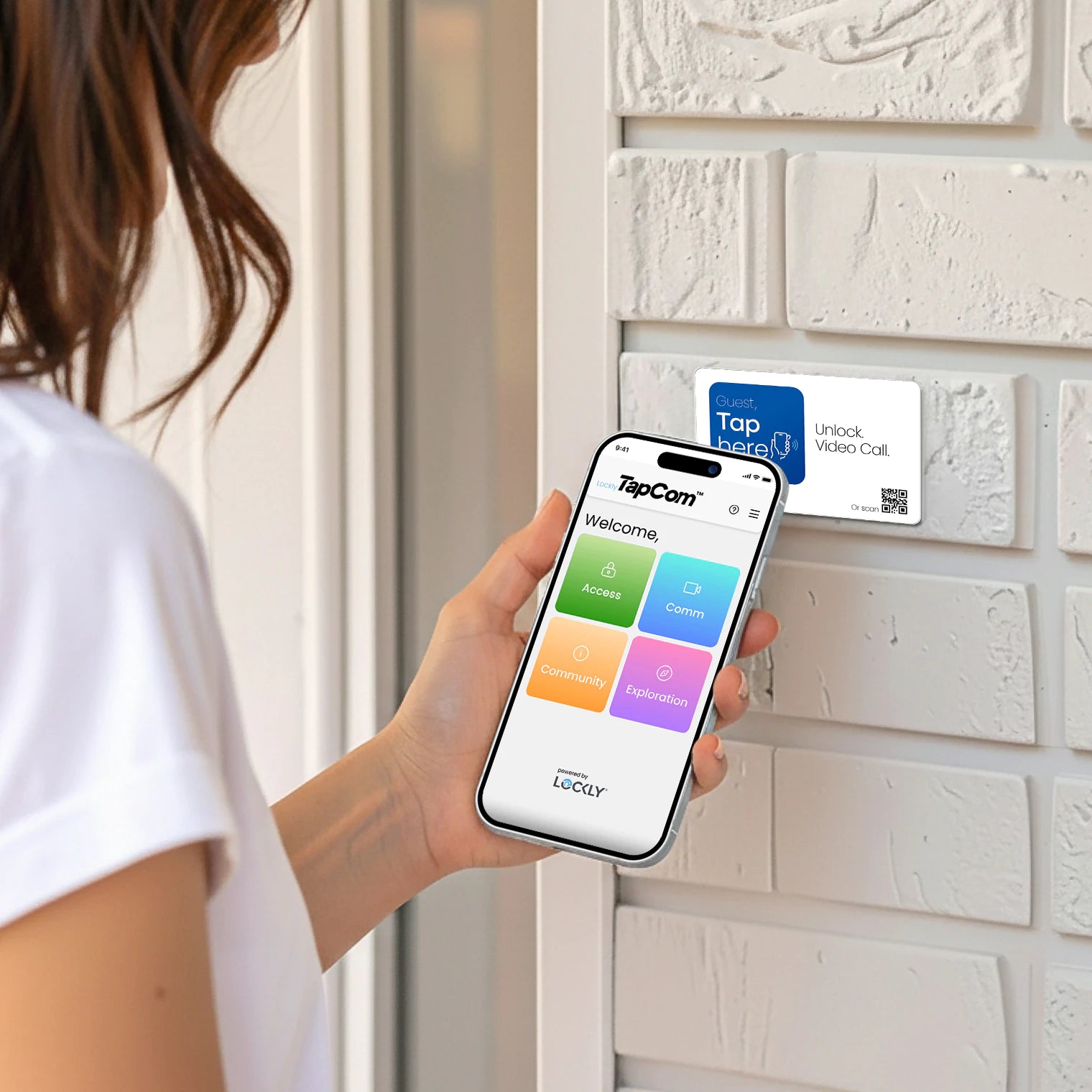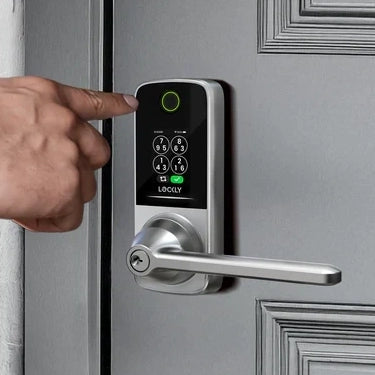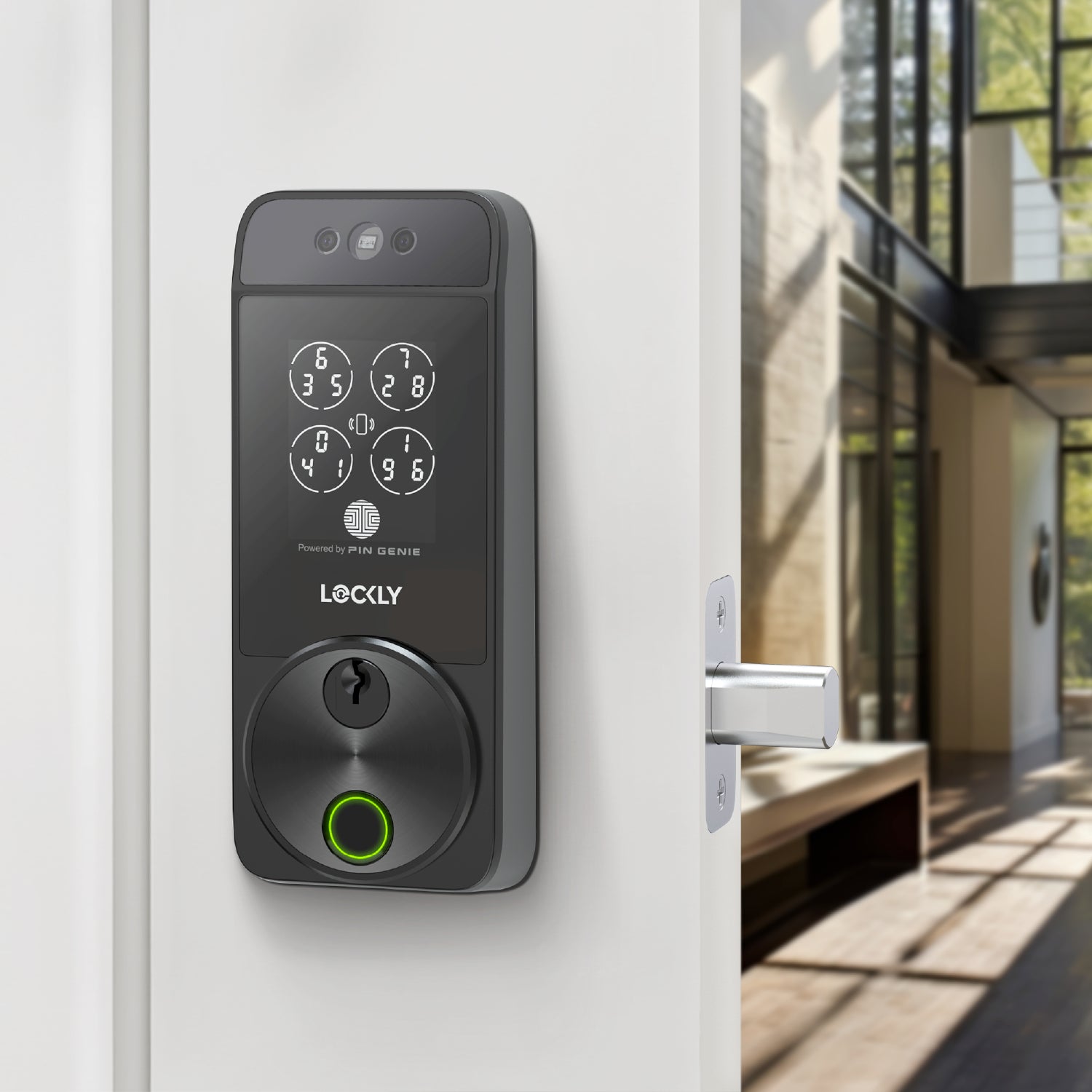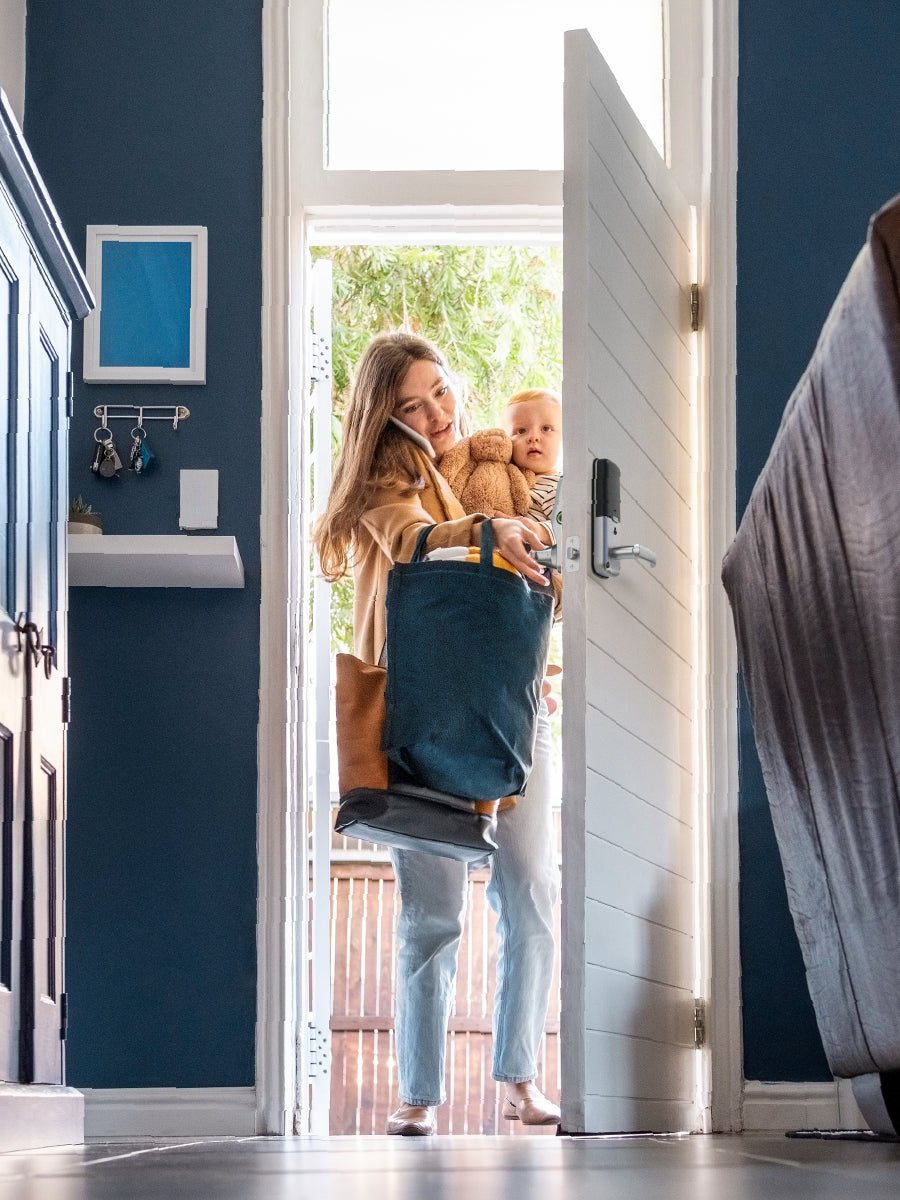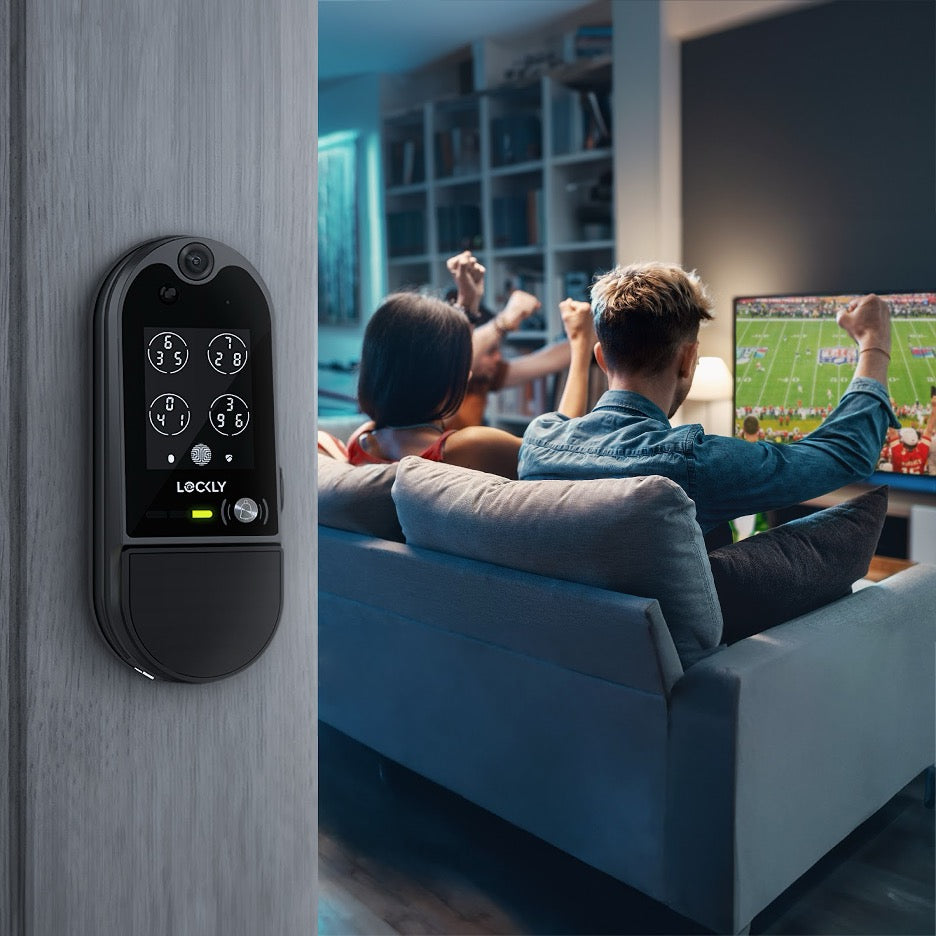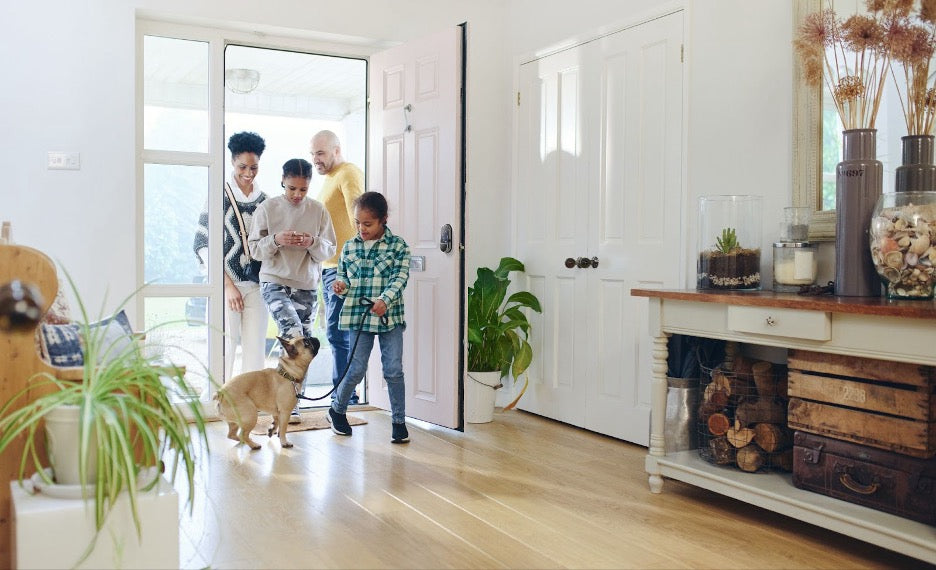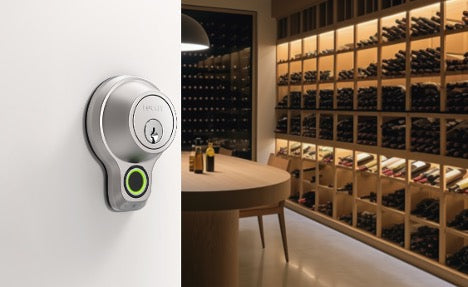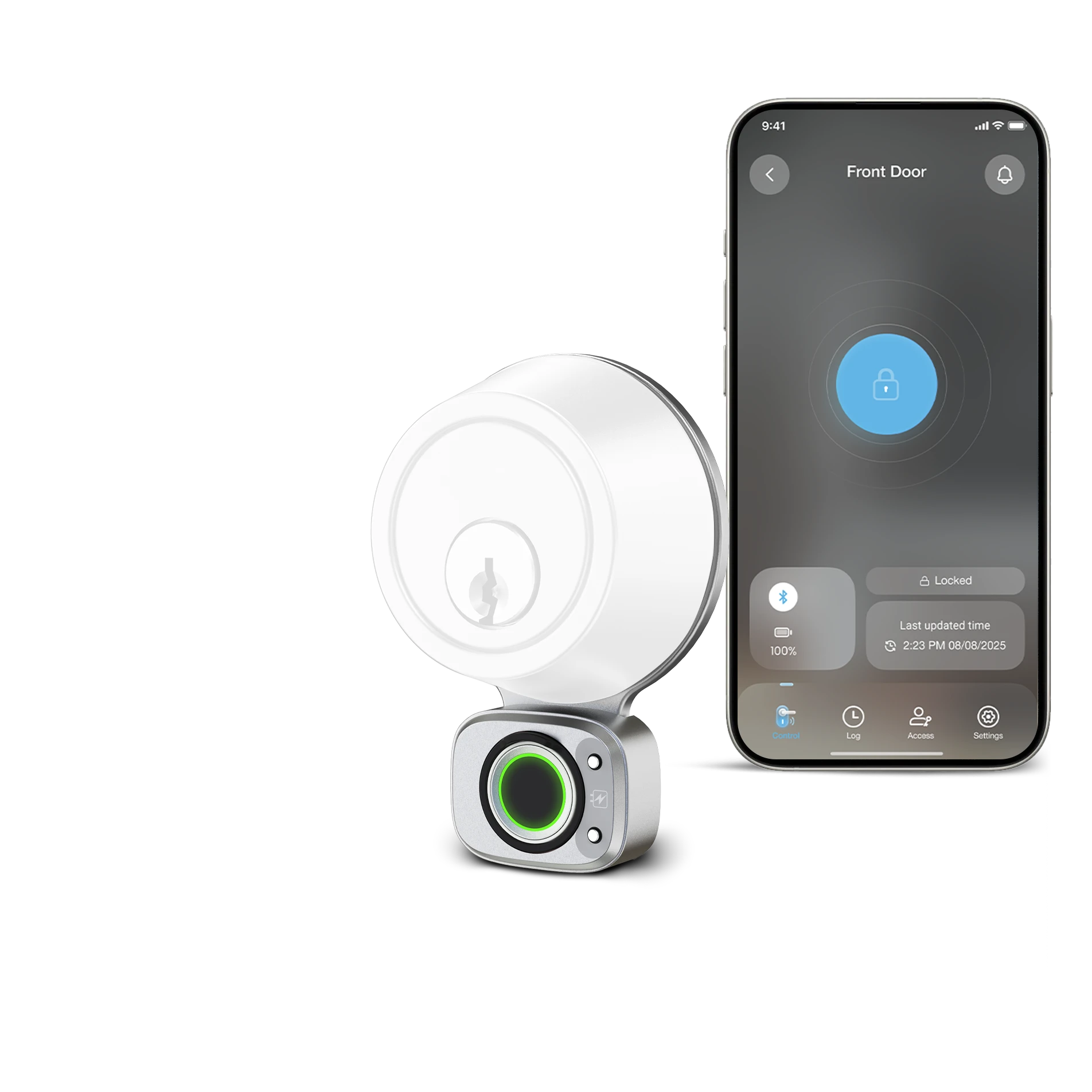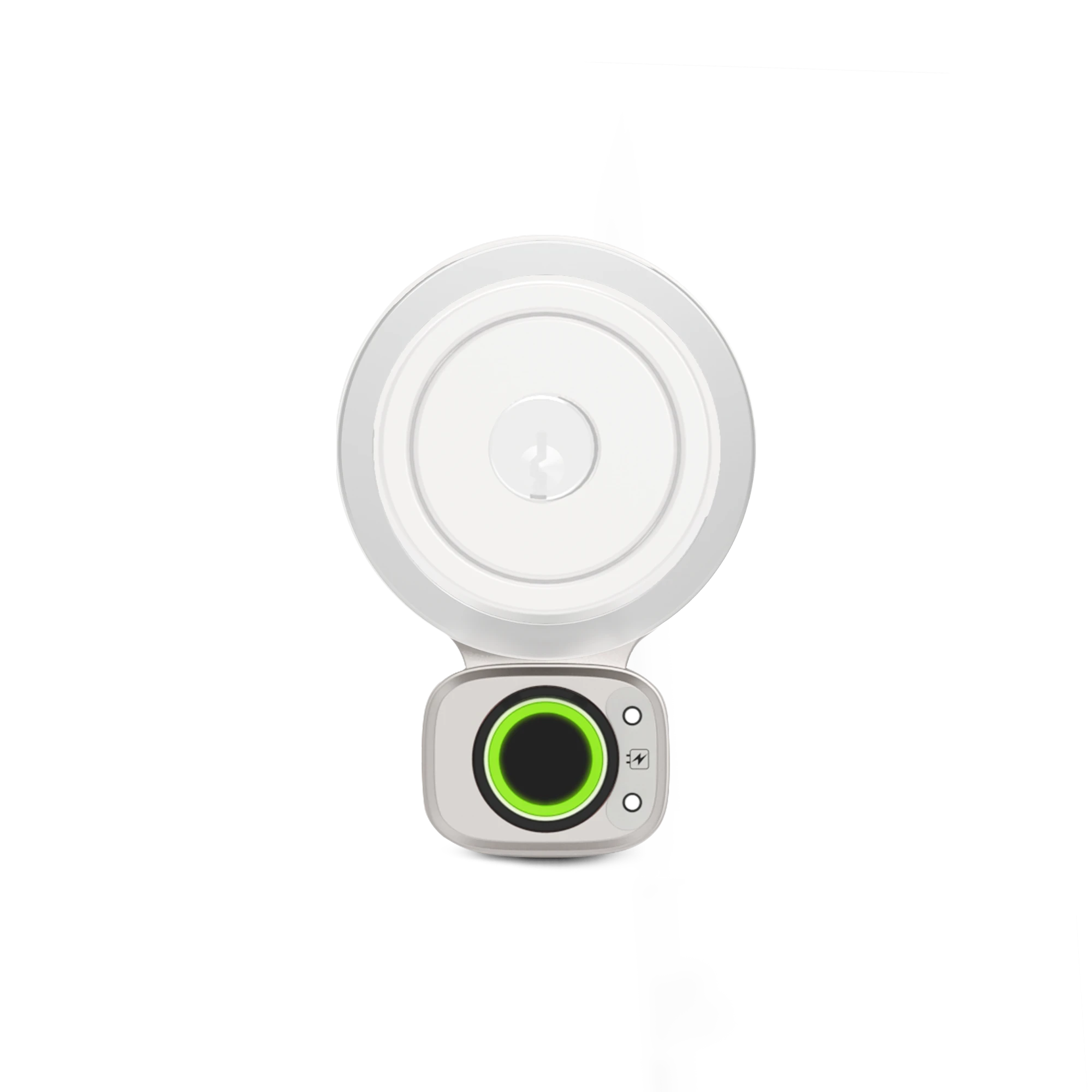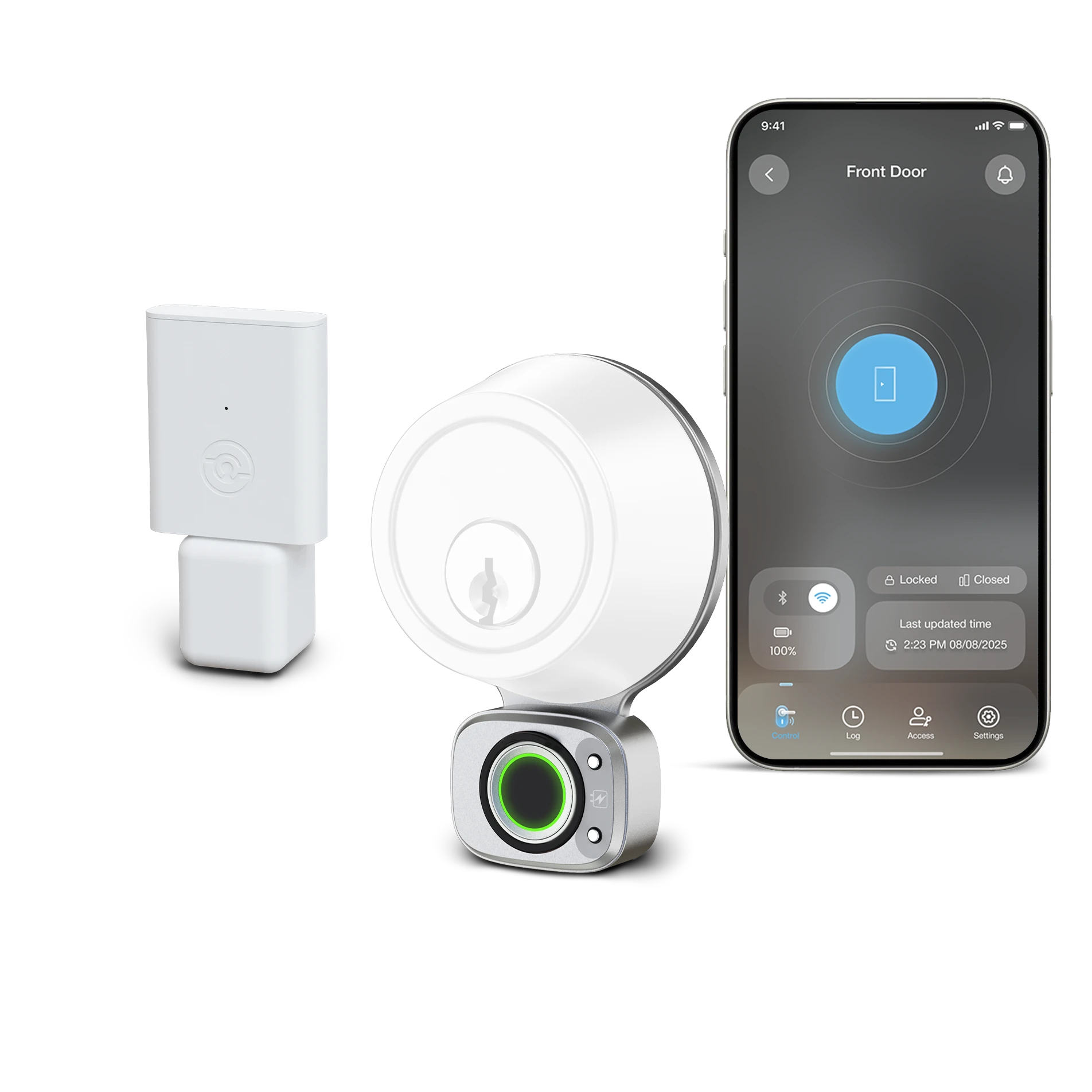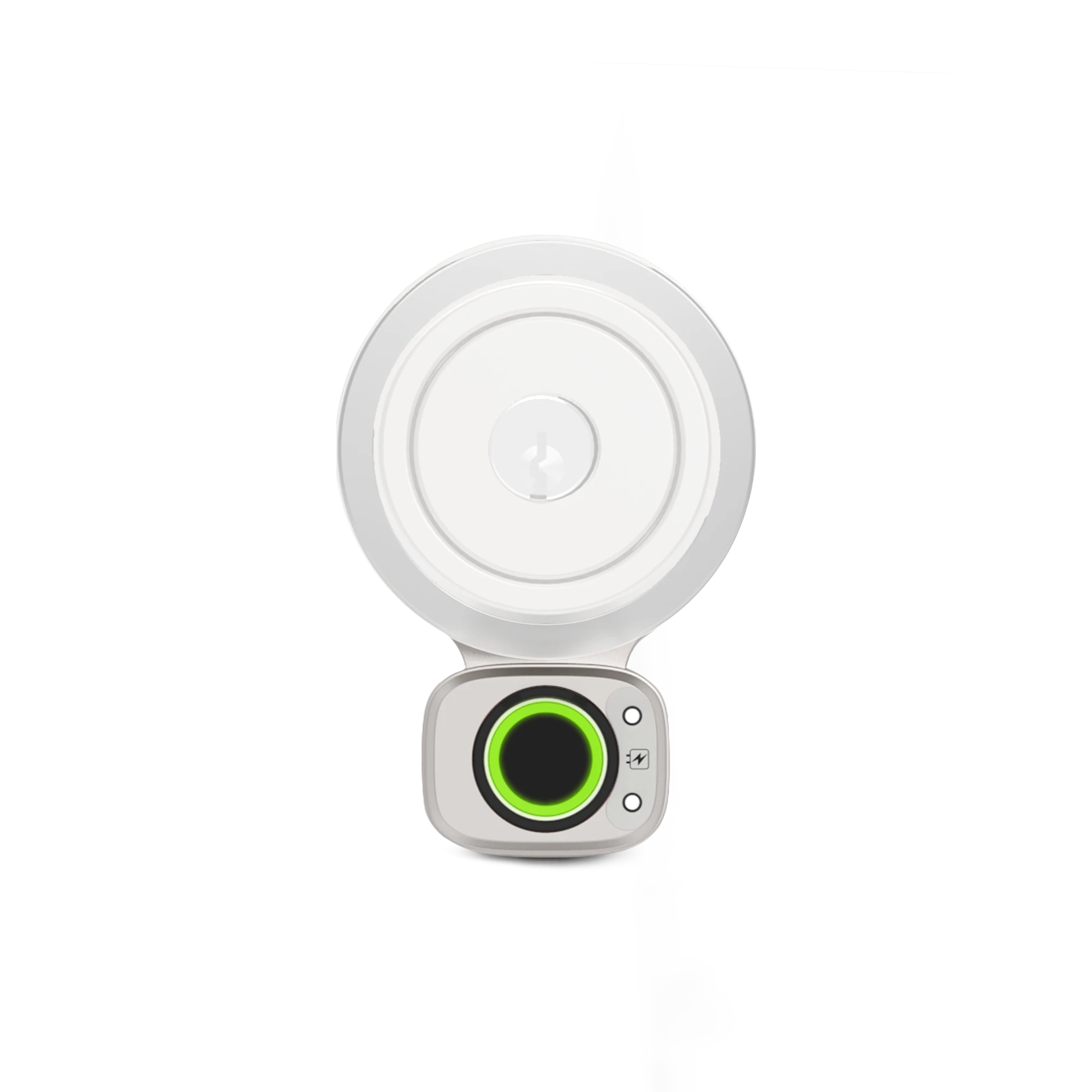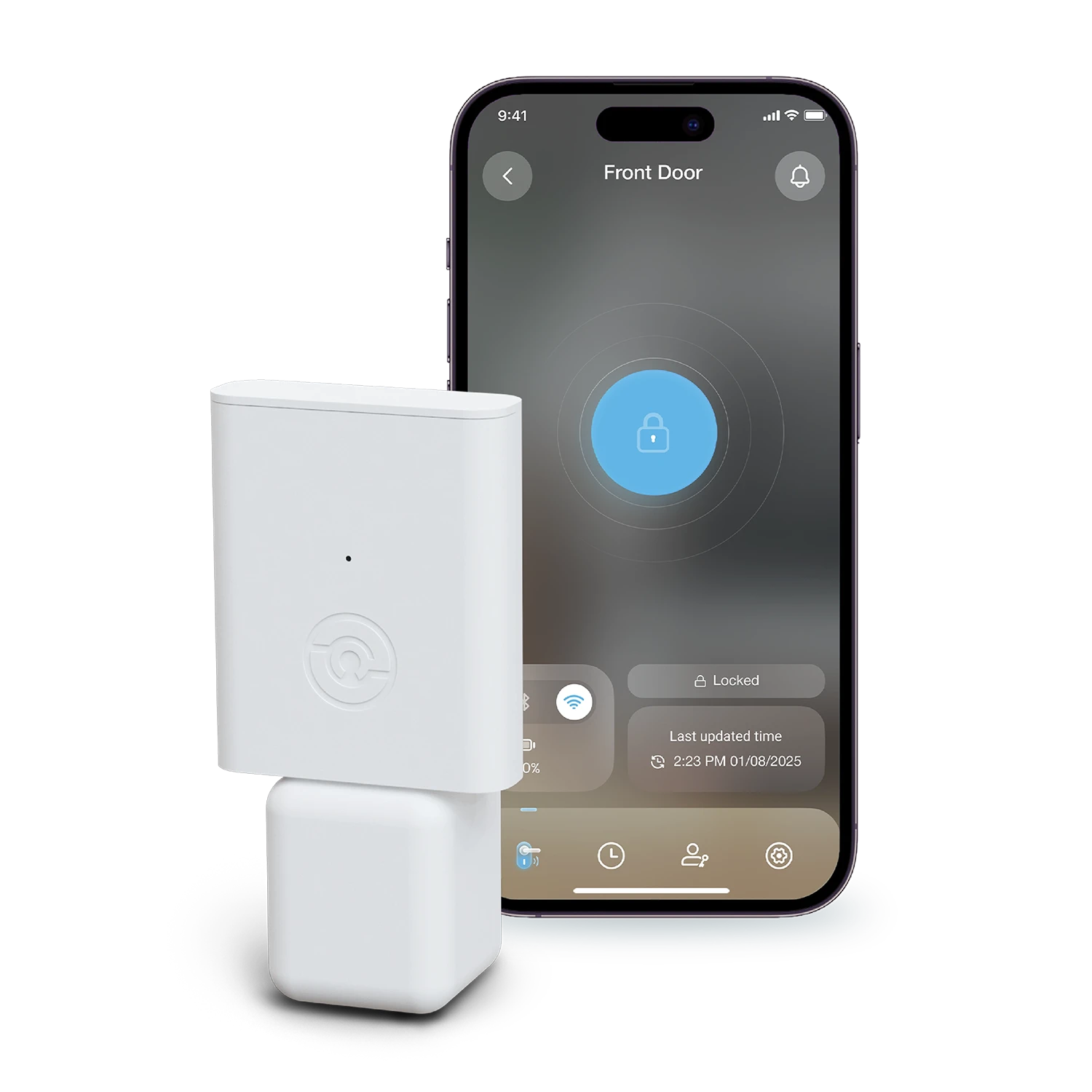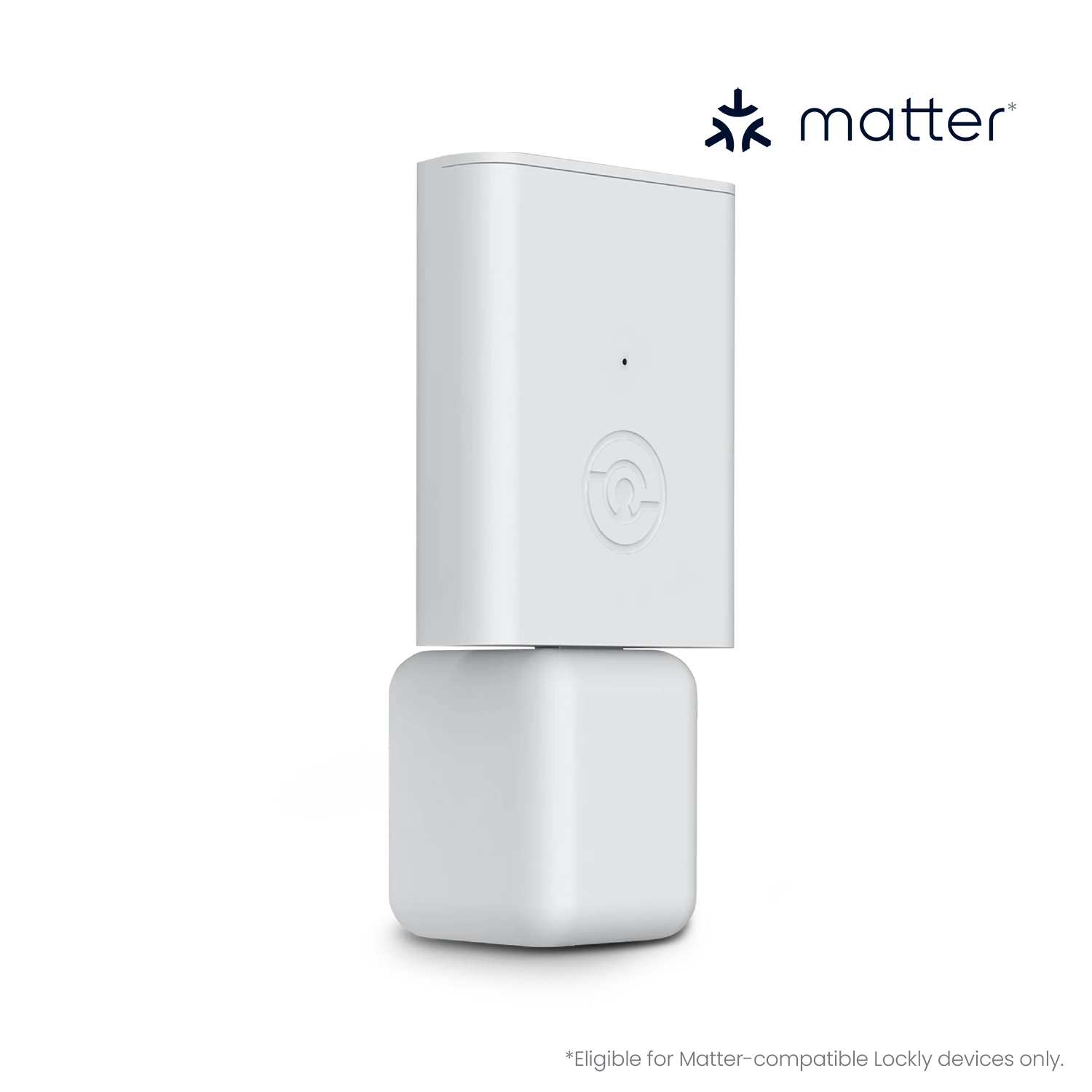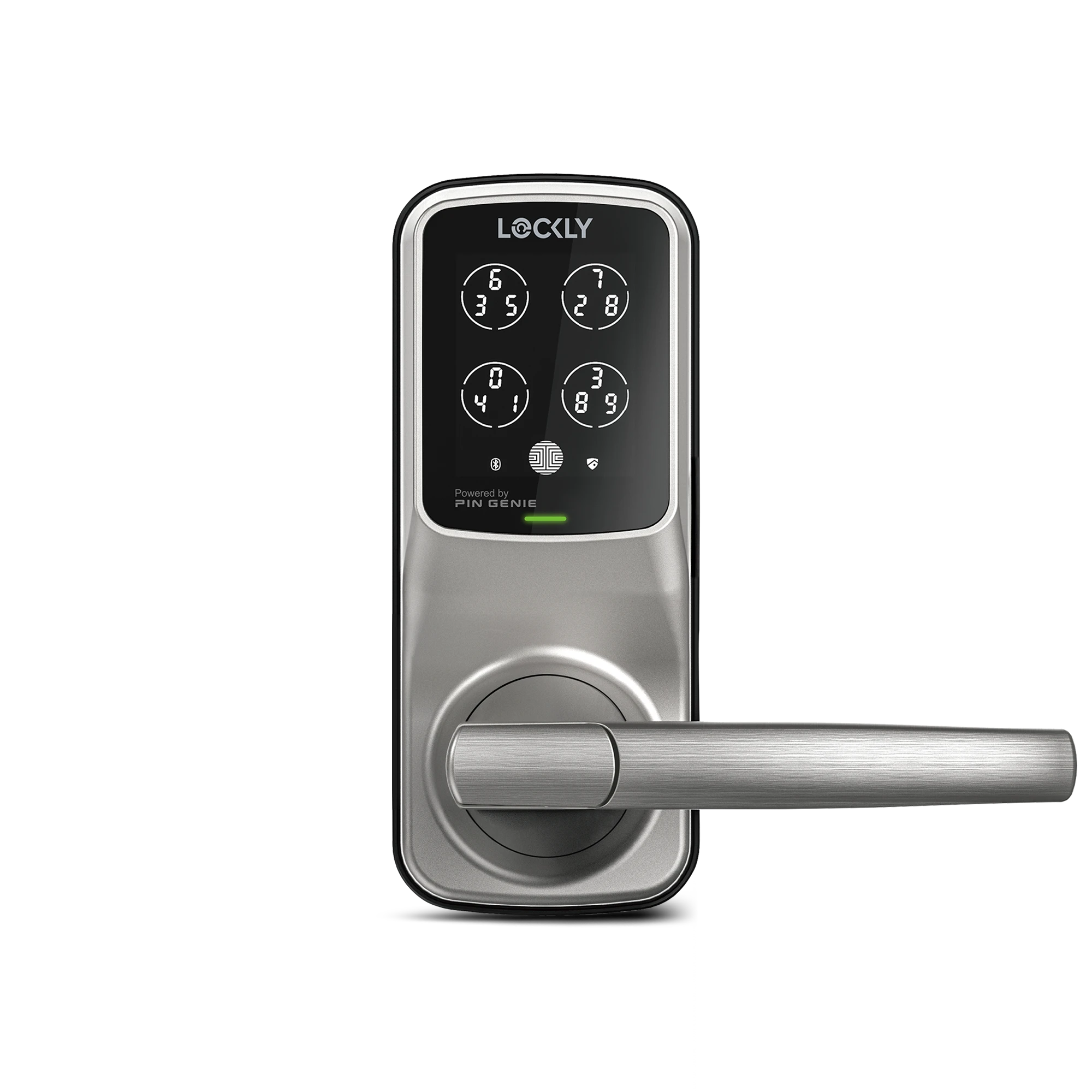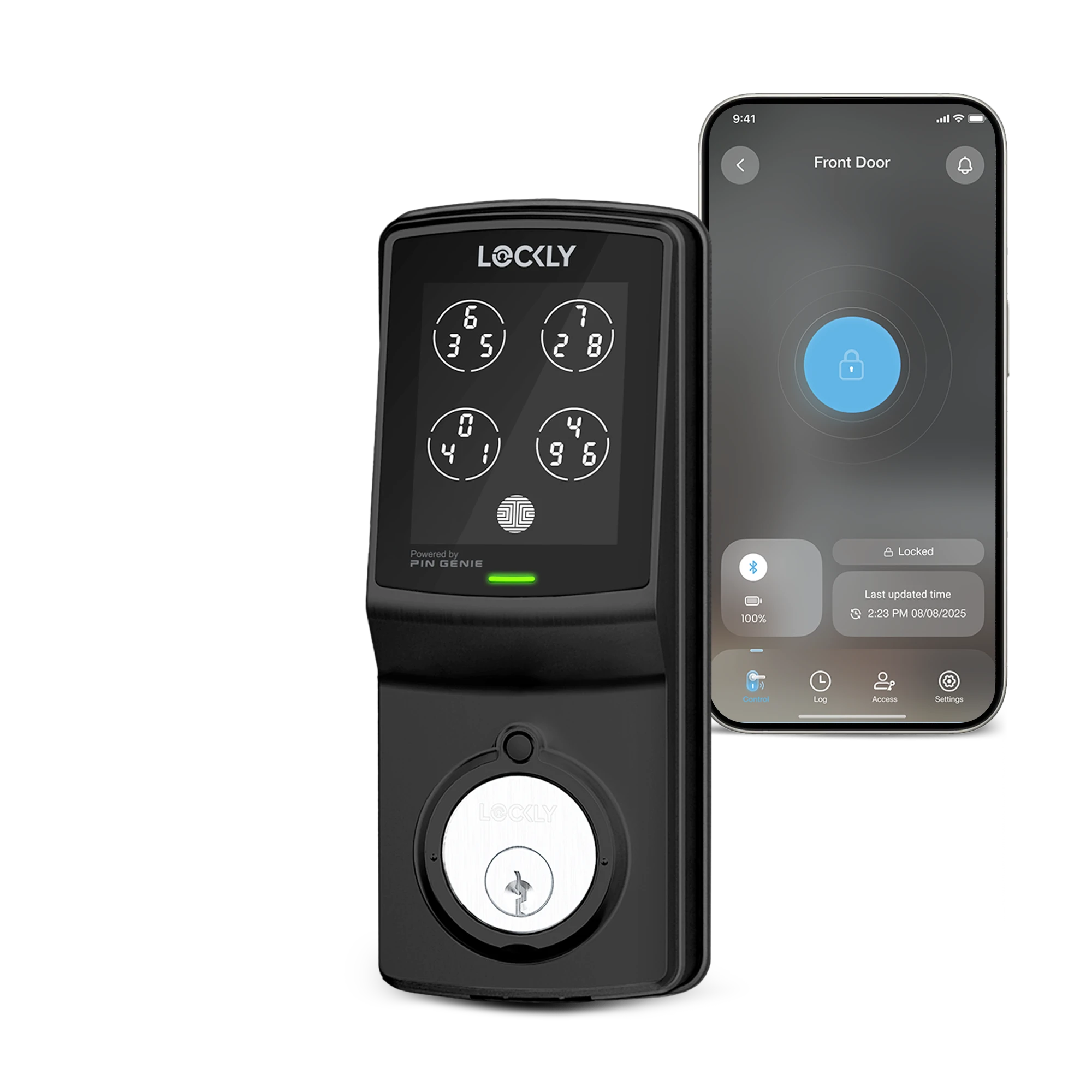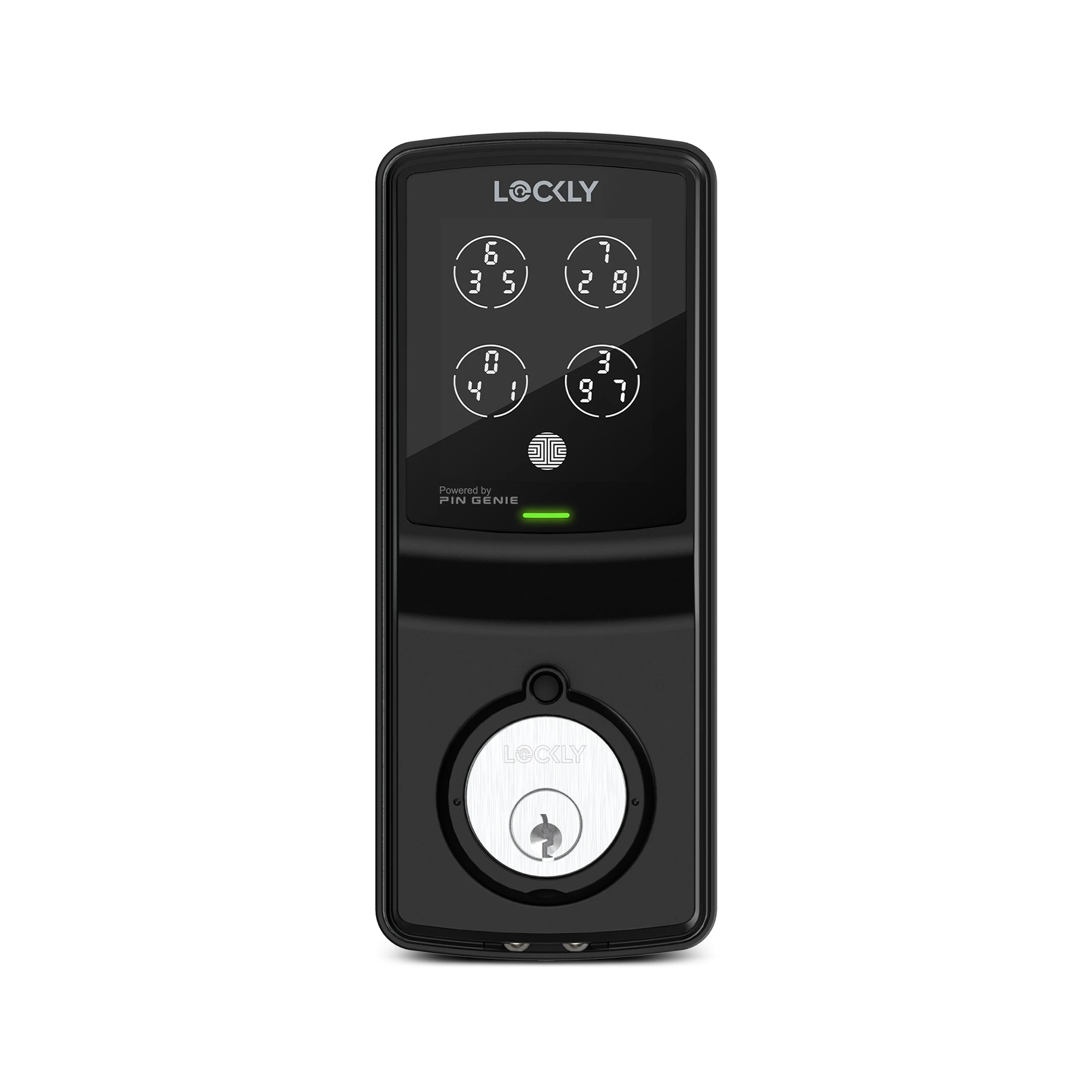Gone are the days when a "smart home" meant simply controlling your lights with your phone. Artificial Intelligence has transformed our homes from merely connected spaces into intelligent environments that learn, adapt, and anticipate our needs.
As we explore this revolution, we’re diving into how AI is fundamentally changing the way we interact with our homes and examining real innovations that are already here.
The Evolution of Home Access: From Keys to Facial Recognition
Perhaps the most visible transformation is happening right at our front door. Traditional keys, once the universal symbol of home security, are being replaced by AI-powered authentication systems. Lockly's latest innovation, the Lockly Visage smart lock, exemplifies this evolution. Using dual infrared sensors, it can recognize faces within 2.6 feet and unlock the door in under 1.5 seconds, making it one of the first consumer smart locks to incorporate facial recognition technology in the US.
But it's not just about convenience. The AI algorithms powering these systems are sophisticated enough to ensure security isn't compromised for convenience. For instance, Lockly's facial recognition data is encrypted and stored locally on the device, never leaving your home or being sent to external servers. This approach addresses one of the primary concerns about AI in our homes: data privacy.
Learning Your Patterns: The Rise of Adaptive AI
Modern smart homes are becoming increasingly adept at learning and adapting to our daily routines. Take Lockly's biometric fingerprint technology as an example: the latest sensors don't just recognize fingerprints, they actively learn and improve over time through AI algorithms. With recognition speeds of 0.2 seconds and accuracy rates approaching 99.8%, the system becomes more efficient with each use, even adapting to work seamlessly with elderly users and children.
This kind of adaptive learning extends throughout the smart home ecosystem. Your home isn't just responding to commands; it's understanding patterns and anticipating needs. When AI notices you typically return home from work at 5:30 PM, it can prepare your house by adjusting the temperature, disarming security systems, and even turning on specific lights, all before you reach your front door.
Voice Control Goes Beyond Simple Commands
Voice assistants have evolved from simple command-and-response systems into sophisticated AI-powered home managers. Modern smart locks like Lockly's can integrate with multiple platforms (Apple HomeKit, Amazon Alexa, and Google Assistant) creating a seamless voice-controlled environment. These systems now understand context, remember preferences, and can even anticipate needs based on past behaviors.
The integration with Apple Home Keys adds another layer of convenience, allowing users to unlock their doors with just a tap of their iPhone or Apple Watch. This seamless integration between AI-powered security and everyday devices represents the future of smart home interaction, where technology adapts to our natural behaviors rather than forcing us to adapt to them.
Energy Management and Sustainability
AI's impact on smart homes extends to energy management and sustainability. Smart systems can now learn occupancy patterns, optimize heating and cooling schedules, and automatically adjust settings based on real-time conditions. For example, Lockly's auto-locking functionality ensures doors are secure while preventing energy waste from HVAC systems running unnecessarily when doors are left open.
The Future is Already Here
What makes today's AI-powered smart homes truly remarkable is their ability to create a cohesive ecosystem where different devices work together intelligently. Lockly's approach to this is evident in their integrated systems, from facial recognition and fingerprint scanning to video monitoring and remote access control, all managed through a single intelligent platform.
Looking ahead, we can expect AI to become even more sophisticated in understanding and anticipating our needs. Imagine a home that:
- Recognizes your mood through facial expression and voice patterns, adjusting lighting and music accordingly
- Predicts maintenance needs before systems fail
- Automatically adjusts security protocols based on recognized patterns and potential threats
- Creates personalized experiences for each family member
The Human Element
Despite all these technological advances, the most successful smart home implementations are those that maintain a balance between automation and human control. This is why companies like Lockly ensure their AI features can be easily managed through user-friendly apps, allowing homeowners to maintain control while benefiting from AI's capabilities.
Privacy and Security Considerations
As our homes become more intelligent, privacy and security concerns naturally arise. Leading manufacturers are addressing these concerns head-on. Lockly's approach is transparent about our data, which is stored in AWS servers in USA with military grade encryption, setting an important precedent for how AI-powered home technologies can protect user privacy while delivering advanced functionality.
The New Face of Home Security
The integration of AI into our homes represents more than just technological advancement - it's a fundamental shift in how we interact with our living spaces. From facial recognition entry systems to intelligent security monitoring, AI is making our homes more secure, efficient, and responsive to our needs than ever before.
As we look to the future, it's clear that AI will continue to evolve and enhance our home experiences. The key to successful adoption lies in balancing advanced functionality with user privacy and control. With companies like Lockly leading the way in innovative, secure AI implementation, the smart home of tomorrow is already becoming a reality today.
The question is no longer whether AI will transform our homes, it's how quickly and comprehensively this transformation will occur. As these technologies become more sophisticated and accessible, we're moving toward a future where our homes don't just house us. They understand and support us in ways previously confined to science fiction.
Shop our full collection of smart fingerprint door locks today.

